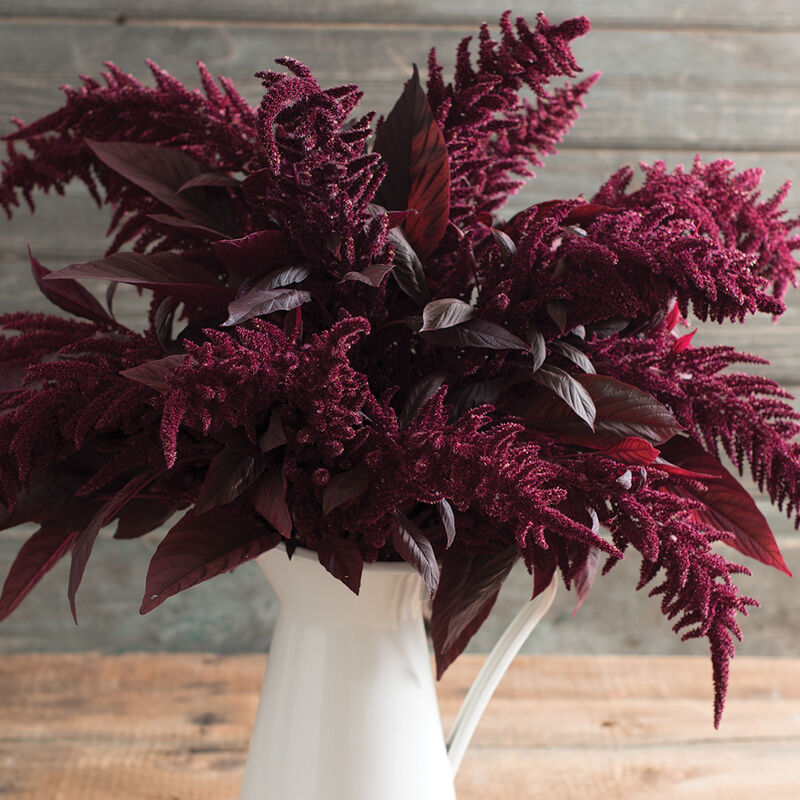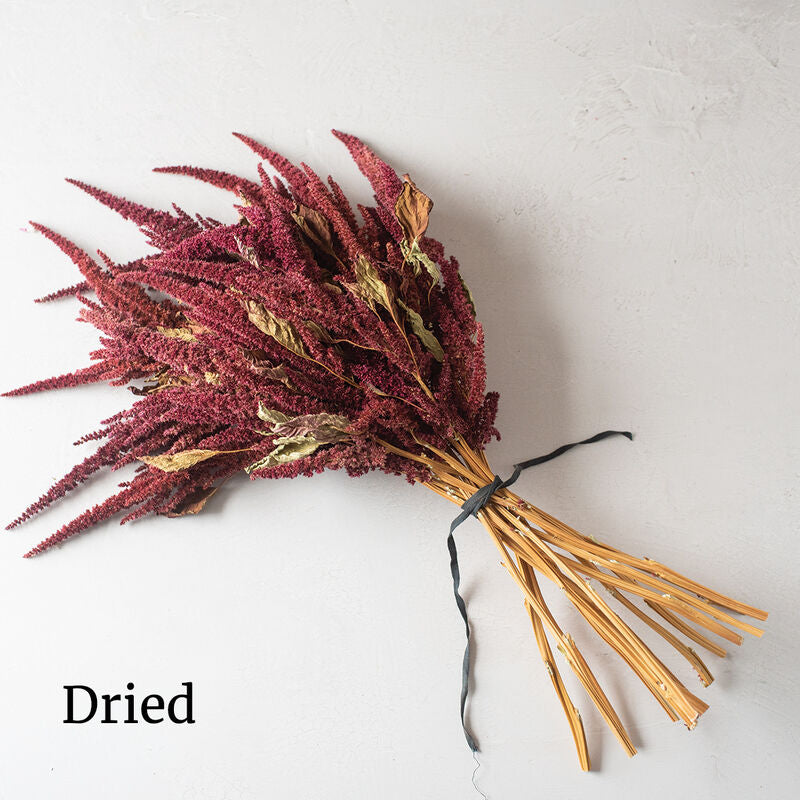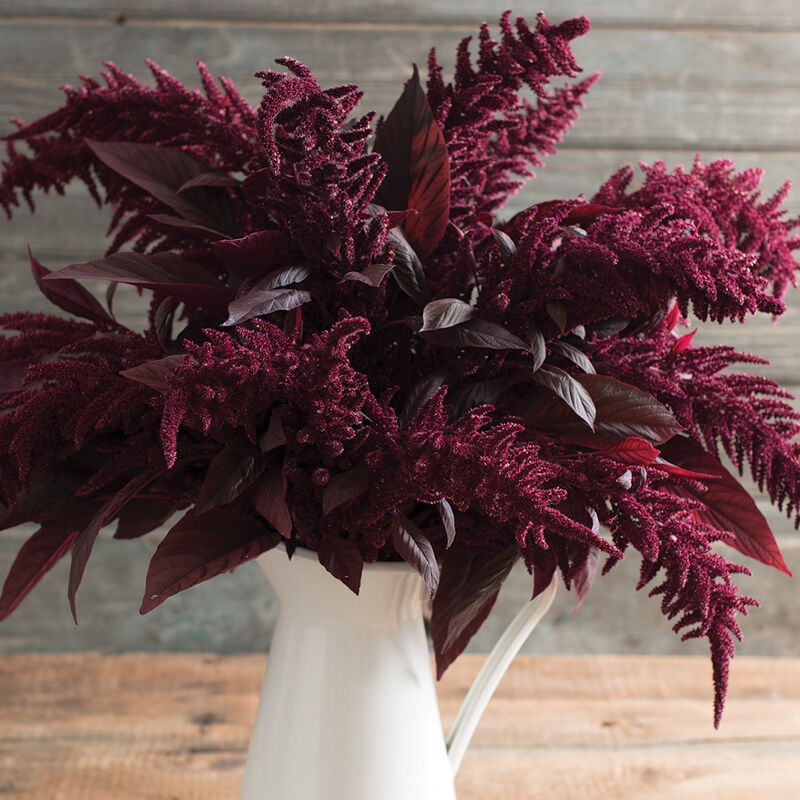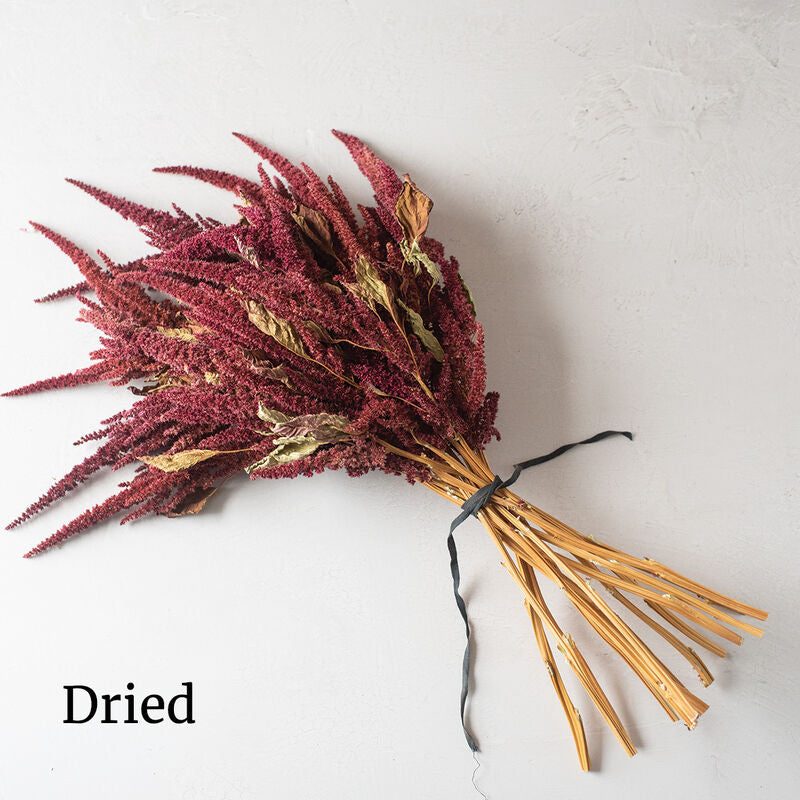Olive Seed Company
Amaranth 'Red Spike'
Amaranth 'Red Spike'
Couldn't load pickup availability
Red Spike (Amaranthus caudatus)
Red Spike amaranth brings a refined elegance to late summer and fall gardens with its gracefully arching, feathery plumes of dark red. These airy flower heads create a soft, sculptural presence that adds both texture and colour to borders, cutting beds, and large containers. Its upright yet flowing form gives movement to floral designs, making it a natural choice for bouquets that call for a touch of sophistication and rustic charm. When planted en masse, Red Spike creates a dramatic swathe of deep crimson that delights the eye and anchors any garden composition.
Beyond its ornamental appeal, Red Spike is also valued for its edible qualities. The young, tender foliage can be harvested for fresh, nutritious greens that add variety to the kitchen garden. This easy-to-grow variety thrives in full sun and well-drained soil, blooming steadily from midsummer into the cooler days of fall. Also known as Tassel Flower, Red Spike is a versatile, season-spanning favourite for gardeners and floral artists alike.
DETAILS:
QTY: 200
TYPE: Annual
SITE: Full Sun
DEPTH: BARELY COVER
GERMINATION: 7 - 10 days at 21 - 24°C
HEIGHT: 24" - 30” Support may be necessary.
MATURITY: 65 - 75 Days
SPACING: 12 - 15”
PINCH: Yes
HOW TO GROW:
Transplanting (recommended): Start seeds indoors 4–6 weeks before your average last frost date. Barely cover the seeds with a fine layer of soil or vermiculite, as they require light to germinate. To avoid displacing them, bottom water or mist gently. Harden off seedlings by growing them at night temperatures of – before transplanting outdoors after all danger of frost has passed.
Direct Seeding (alternative): Sow seeds outdoors after your last frost date. Sow seeds thinly and barely cover. Once seedlings have developed their first true leaves, thin them to a final spacing of 12–15" apart.
Pinching and Support: Pinching the tops of young plants will encourage a bushier habit and more blooms. Taller varieties may require staking or other support to prevent them from flopping over.
Soil Preference and Watering: Amaranthus thrives in full sun and tolerates a wide range of soil conditions, but prefers well-drained soil. It is a heat-loving and drought-tolerant plant once established, but will perform best with consistent moisture.
Fertilizing: Fertilizing is not typically necessary unless your soil is very poor. Over-fertilizing, especially with nitrogen, can lead to excessive foliage growth and fewer flowers.
Harvesting: For bouquets, harvest amaranthus when the flowers are about three-quarters of the way open and the stems are firm. For drying, harvest when the flowers are fully developed and the seeds are set. Hang bunches of stems upside down in a dark, well-ventilated area until completely dry.
Shipping & Returns
Shipping & Returns


-
Free Shipping
Free Shipping on all orders in Canada over $125.00


